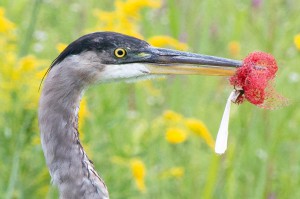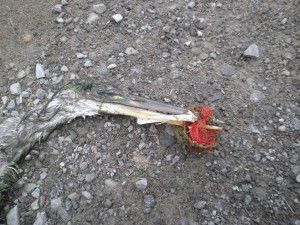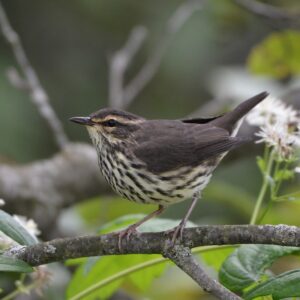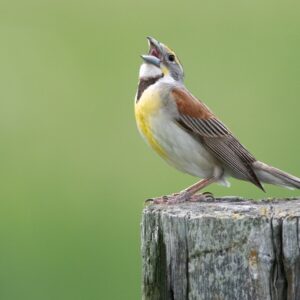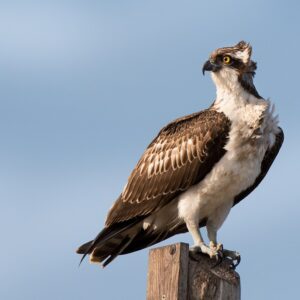Keeping Our Wild Spaces Clean
Last month, Dan Rogall, an Ottawa-area photographer alerted us of a great blue heron’s plight that was unfolding in his backyard in Half Moon Bay. The young male had chewed on what appeared to be a plastic onion bag. The bag became entangled in its beak. Dan proceeded to alert local wildlife groups in the hopes that someone could help free the bird of its plastic muzzle.
We jumped in and posed the question of how to go about helping this bird to our community of birders and scientists. The consensus was not as satisfying as one would have hoped. Attempts to capture the bird could prove fatal, and so the best route to take was to leave it alone and hope it would free itself. Not the kind of advice that’s easy to heed given the magnetic quality of this particular bird. As the saga unfolded on Facebook, Dan kept us in the loop of the heron’s whereabouts and well being.
It’s troubling to see an animal in distress. If only the person who had discarded the plastic bag had done so responsibly. Perhaps he or she didn’t realize that garbage posed a significant threat to birds and other wildlife in the area. I’d like to think so.
At first, the young male seemed to be feeding and moving without much trouble. The net was obtrusive and irritating, but it was fighting hard and frequently to free itself. Dan kept us updated on its progress, and the tide appeared to be turning in its favour.
For a while, it was seen occasionally at Half Moon Bay. Then not at all. Then one day, weeks after the ordeal began, the heron’s colourless, muddied body was found at a local golf course. It didn’t make it. Somehow, the struggle to keep feeding and preening, flying and exploring had become too difficult for the heron. Its ultimate cause of death has not been determined by a specialist, but without any obvious signs of trauma, there’s a chance the netting was related to its demise.
Can anything positive come of this? We’d like to think that if more people were connected to nature in their area, things like this wouldn’t happen or would happen far less frequently.
We are actively involved in educating local Ottawa and Gatineau residents about the great wildlife sanctuary we have right in the centre of the city – the Lac Deschênes Important Bird Area. In fact, one of the species that frequents the area is great blue heron. There’s a good chance the heron of Half Moon bay will pass through the IBA at some point in its life.
If you’re interested in learning more about how you can enjoy Ottawa’s Important Bird Area, check out our recently launched website where you’ll find ideas on what to do at the IBA, why the IBA is important to wildlife, and what you can do to protect it.

